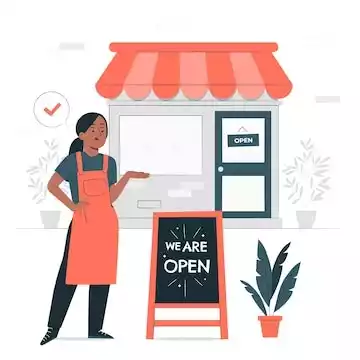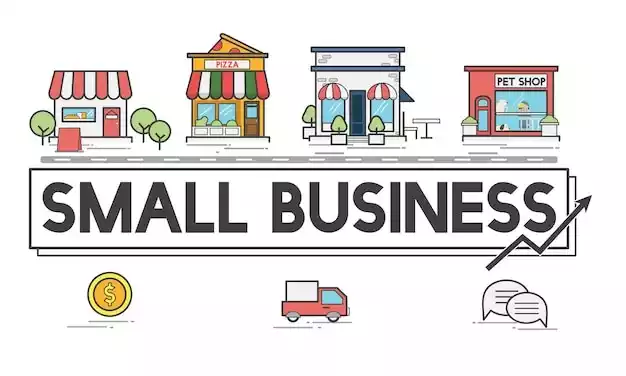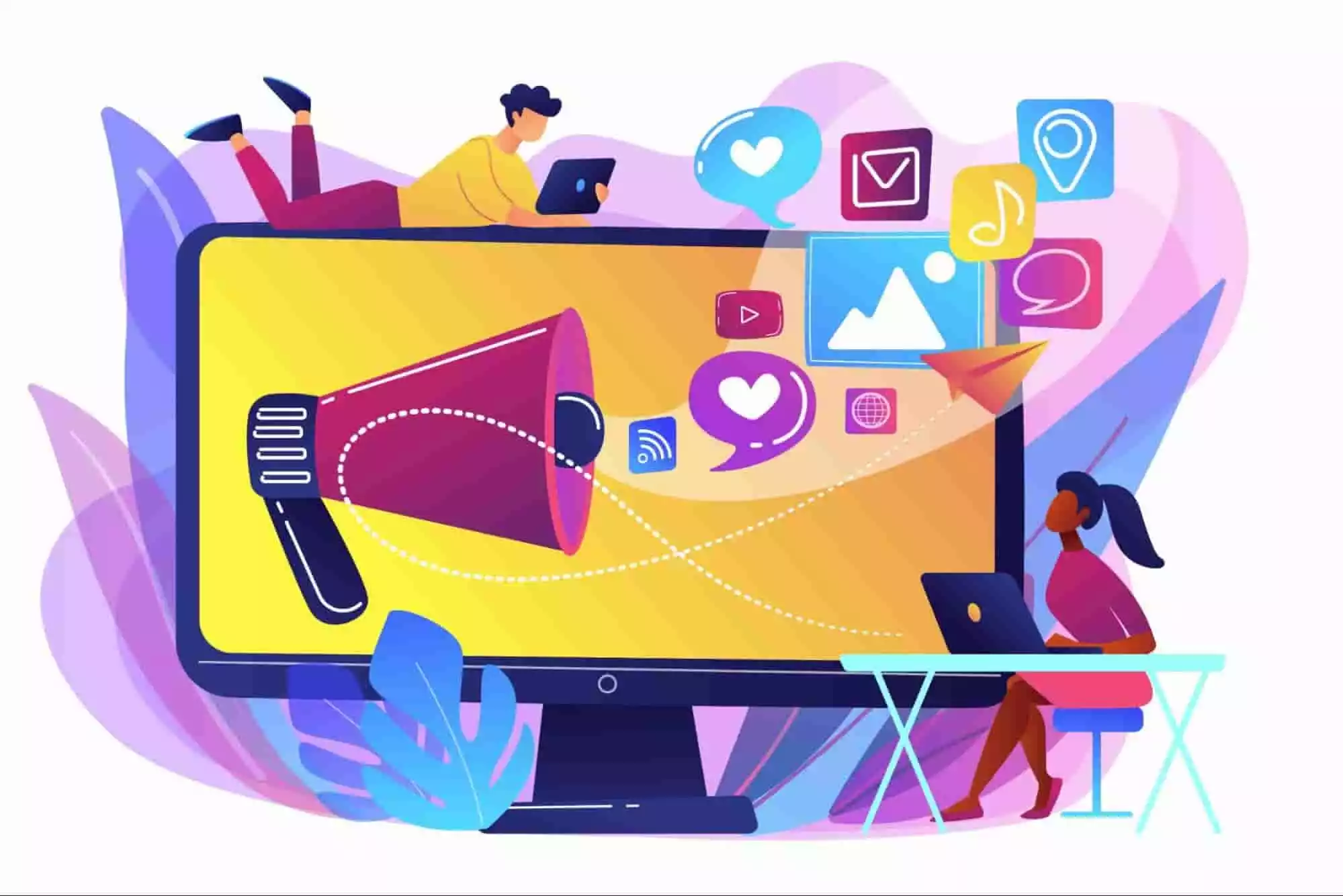Small Business Promotion Ideas For 2024
![small-business-tips.jpg]()
Understanding Your Target Audience
Before you can effectively promote your business, you need to know who you’re promoting it to. Think of it like planning a surprise party—you wouldn’t plan a beach party for someone who hates the sun, right? The same goes for your business. To get the best results, you need to clearly define your ideal customer.
1. Define Your Ideal Customer
Start by imagining the perfect customer for your business. Who are they? What do they like? What problems do they need solving that your product or service can help with? Consider their age, gender, occupation, lifestyle, and even their shopping habits. The more specific you can be, the better. For example, if you’re opening a coffee shop, your ideal customer might be a 25-40 year-old professional who loves good coffee, enjoys working in cozy environments, and appreciates locallysourced ingredients.
2. Importance of Market Research
Once you have a picture of your ideal customer, it’s time to do a little homework—this is where market research comes in. Market research might sound complicated, but it’s really just about understanding more about the people you want to reach and the market you’re entering.
Start by looking at similar businesses and their customers. What do their customers like or dislike? Where do they hang out online? You can also use surveys, social media polls, or even just casual conversations to gather insights. This research will help you uncover trends, preferences, and behaviours that will guide your promotional efforts.
3. Tailor Your Promotional Strategies to Your Audience’s Needs and Preferences
With your ideal customer and market research in hand, you’re ready to craft promotional strategies that really resonate. Tailoring your approach means thinking about where your audience spends their time and what kind of messaging will catch their eye.
For example, if your ideal customer is a young, tech savvy professional, social media platforms like Instagram or LinkedIn might be the best places to reach them. On the other hand, if you’re targeting busy parents, you might focus on local community events or helpful blog content that offers tips for managing family life.
4. Establishing an Online Presence
In today’s digital world, having an online presence isn’t just an option—it’s a necessity. Think of your online presence as your business’s virtual storefront. It’s where people come to learn about you, see what you offer, and decide if they want to become your customers. So, let’s talk about how to establish a strong online presence that not only attracts visitors but also turns them into loyal customers.
Create a Website
![small-business-website.jpg]()
1. Importance of a Professional Website
Your website is often the first impression people have of your business, so it’s crucial that it looks professional and reflects the quality of what you offer. A welldesigned website builds trust and credibility, showing potential customers that you’re serious about your business. It’s like having a tidy, welcoming storefront—when people see that you’ve put effort into your website, they’re more likely to stick around and explore.
Key Elements to Include
When creating your website, make sure it’s easy to navigate and includes all the essential information visitors might need. Here are some key elements to focus on:
-
- Contact Information: Make it super easy for people to get in touch with you. Include a clear and accessible contact page with your phone number, email address, and physical location if applicable.
- Product/Services Description: Clearly explain what you offer. Use engaging, easytounderstand language, and include highquality images to showcase your products or services.
- Blog: Adding a blog can be a great way to share valuable content with your audience, establish yourself as an expert in your field, and improve your website’s search engine ranking. You can use your blog to answer common customer questions, share tips, or talk about industry trends.
2. Search Engine Optimization (SEO)
Search Engine Optimization, or SEO, is all about making your website more visible on search engines like Google. When someone searches for a product or service you offer, you want your website to appear near the top of the search results. That’s where SEO comes in. For small businesses, SEO doesn’t have to be complicated. Start by focusing on the basics:
-
- Keywords: Think about the words or phrases people might use to search for your business. Include these keywords naturally in your website content, especially in titles, headings, and the first few paragraphs of your pages.
- MobileFriendly Design: Make sure your website looks good and works well on mobile devices. A lot of people browse the web on their phones, and search engines reward mobilefriendly websites with better rankings.
3. Tips for Optimizing Website Content
-
- Quality Content: Create valuable, informative content that answers your audience’s questions and meets their needs. The more useful your content is, the more likely people are to stay on your site, which is something search engines notice.
- Internal Links: Link to other pages on your website within your content. This helps search engines understand the structure of your site and can improve your rankings.
- Page Speed: Make sure your website loads quickly. Slowloading sites can frustrate visitors and hurt your search engine rankings. You can improve page speed by optimizing images and minimizing the use of heavy scripts.
Social Media Marketing
![small-business-social-media.jpg]()
Social media is a powerful tool for connecting with your audience, but with so many platforms out there, it’s important to focus on the ones that make the most sense for your business. Think back to your target audience—where do they spend their time online? If you’re targeting young adults, platforms like Instagram or TikTok might be ideal. If your audience is more professional, LinkedIn could be the way to go.
Once you’ve chosen your platforms, consistency is key. Regularly posting content keeps your business topofmind for your followers. This doesn’t mean you need to post every hour, but a consistent schedule—whether it’s daily, a few times a week, or even weekly—helps build your presence.
Engagement is just as important as posting. Respond to comments, answer questions, and interact with your followers. This shows that you care about your audience and are attentive to their needs, which helps build a loyal community around your brand.
Don’t forget about social media advertising! Platforms like Facebook and Instagram offer affordable advertising options that let you target specific demographics, ensuring your ads reach the people most likely to be interested in your business. Start small, experiment with different ad types, and adjust your strategy based on what works best.
Use Local Marketing
When you're learning how to promote your small business, local marketing is a must-have strategy. It’s all about connecting with the people in your community—those who are most likely to become your loyal customers. By focusing on local marketing, you can make your business a go-to spot in your area.
1. Google My Business
If you want to be found by local customers, setting up a Google My Business (GMB) profile is one of the smartest moves you can make. This free tool from Google allows your business to appear in local search results and on Google Maps, making it easier for nearby customers to find you.
Here’s why it’s so important: When someone searches for a business like yours, Google often shows a “local pack” of businesses at the top of the search results. Having a well-optimized GMB profile increases your chances of being in that coveted spot.
To get the most out of your GMB profile, make sure it’s complete and accurate. Include your business name, address, phone number, hours of operation, and website. Add high-quality photos of your business, products, or services to make your profile more appealing. Don’t forget to encourage your happy customers to leave reviews—positive reviews can boost your visibility and attract more customers.
2. Community Engagement
Another effective way to promote your small business locally is by getting involved in your community. When you actively participate in local events, sponsor local causes, or join business groups, you’re not just promoting your business—you’re building relationships and establishing yourself as a community-focused brand.
Start by looking for local events that align with your business. Whether it’s a farmers’ market, a charity run, or a community fair, setting up a booth or sponsoring part of the event can give you direct access to potential customers. It’s also a great way to show that you’re invested in the community.
Sponsoring local causes, like sports teams or charity events, is another excellent way to get your business name out there. People appreciate businesses that give back, and this goodwill can translate into customer loyalty.
Content Marketing
Think of content marketing as a way to have conversations with your potential customers, not just shout at them about your products. It's about building relationships and trust by sharing valuable information that helps people. Here's how to make it work for your small business:
1. Blogging
Imagine your blog as a platform where you share your knowledge and expertise with the world. It's a great way to establish yourself as an authority in your industry and attract people who are interested in what you have to say.
-
- Topics to Cover: Think about the questions your customers might have about your products or services. What are they struggling with? What are they curious about? Write blog posts that answer those questions and provide helpful information.
- Promote Your Posts: Don't just write a blog post and hope people find it. Share it on social media, email it to your subscribers, and even reach out to other bloggers and websites to see if they'll link to it.
- Example: If you sell organic skincare products, you could write blog posts about the benefits of natural ingredients, how to choose the right products for your skin type, or even DIY skincare recipes.
2. Email Marketing
Email marketing is like having a direct line to your customers. It allows you to stay in touch with them, share updates about your business, and promote your products or services.
-
- Building an Email List: Offer something valuable in exchange for people's email addresses, like a discount code, a free ebook, or a checklist. Make sure you have a clear signup form on your website and social media pages.
- Crafting Effective Campaigns: Don't just send out generic emails. Segment your email list based on people's interests and send them relevant content. For example, you could send a special offer to people who have purchased from you before or share a new blog post with people who have subscribed to your blog.
- Example: If you sell handmade jewelry, you could send out an email newsletter with new product announcements, behind-the-scenes glimpses of your creative process, and exclusive discounts for your subscribers.
Networking and Partnerships
Just like you wouldn't try to build a house alone, you don't have to promote your small business in a vacuum! Networking and partnerships are powerful tools for expanding your reach and attracting new customers. Think of it as building a supportive community around your business.
1. Collaborating with Other Local Businesses
Imagine your business is a puzzle piece. By partnering with other businesses that complement your offerings, you can create a bigger, more complete picture. This is called cross-promotion.
-
- Find the Perfect Match: Look for businesses that target a similar audience but offer different products or services. For example, a bakery could partner with a coffee shop to offer a "breakfast bundle" or a clothing store could team up with a beauty salon to host a fashion show.
- Create Win-Win Situations: Think about how you can benefit each other. Offer discounts, joint promotions, or even host events together to reach a wider audience.
- Example: If you own a small bookstore, you could partner with a local coffee shop to host a book signing event. The coffee shop gets more customers, and you get to reach a wider audience of book lovers.
2. Networking Events and Trade Shows
Networking events and trade shows are like giant parties where you can meet other business owners, potential customers, and industry experts. It's a great opportunity to make connections, promote your business, and learn about new trends.
-
- Attend Events: Research local events and trade shows in your industry. Make sure to bring business cards and be prepared to talk about your business in a concise and engaging way.
- Host Your Own Event: Consider hosting a workshop, a networking event, or a product launch party to showcase your business and connect with potential customers.
- Example: If you're a photographer, you could attend a local wedding expo or host a photography workshop to showcase your skills and connect with potential clients.
3. Online Networking
The internet is a powerful tool for connecting with people all over the world. There are many online communities where you can connect with other business owners, industry experts, and potential customers.
-
- Join Industry Forums: Search for online forums and groups related to your industry. Engage in discussions, share your expertise, and connect with other professionals.
- Leverage LinkedIn: LinkedIn is a professional networking platform where you can connect with people in your industry, share your experience, and find potential collaborators.
- Join Online Communities: There are many online communities dedicated to supporting small businesses. These communities can offer advice, resources, and even opportunities for collaboration.
- Example: If you're a graphic designer, you could join online communities for graphic designers to share tips, find inspiration, and connect with potential clients.
Customer Reviews and Testimonials
![small-business-customer.jpg]()
Imagine walking into a new restaurant. You see a line out the door and hear people raving about the food. You're more likely to try it, right? That's the power of social proof! Customer reviews and testimonials work the same way as how to promote small scale business.
1. Social Proof
Positive reviews and testimonials act like endorsements from your happy customers. They show potential customers that other people have had a good experience with your business, which builds trust and makes them more likely to buy from you. Example: Imagine you're selling handmade jewelry online. Having a few glowing reviews from satisfied customers who love the quality and craftsmanship of your pieces will make potential buyers more confident in making a purchase.
2. Encouraging Reviews: Asking for Feedback
Don't be shy about asking for reviews! Your happy customers are your biggest advocates. Here's how to encourage them to share their positive experiences:
-
- Make it Easy: Include review links on your website, social media pages, and email signatures. You can even send out personalized emails asking for feedback after a purchase.
- Offer Incentives: Consider offering a small discount or a free gift to customers who leave a review. Just make sure it's not too tempting, or it might feel like you're buying reviews.
- Provide Excellent Service: The best way to get positive reviews is to provide excellent customer service. Go above and beyond to make your customers happy, and they'll be more likely to leave a glowing review.
3. Responding to Reviews
Don't just sit back and watch the reviews roll in. Respond to both positive and negative reviews to show your customers that you care about their feedback.
-
- Positive Reviews: Thank customers for their kind words and show your appreciation. You can even highlight their feedback in your marketing materials.
- Negative Reviews: Don't ignore negative reviews. Address the concerns raised by the customer and offer a solution. Even if you can't resolve the issue, show that you're listening and taking their feedback seriously.
Conclusion
So, you've learned a lot about how to promote small business! We've covered a lot of ground, from building your website and crafting engaging content to connecting with your audience through social media and leveraging the power of customer reviews.
Promoting your small business online takes time, effort, and a little bit of creativity. Don't get discouraged if you don't see results overnight. Keep experimenting, keep learning, and keep trying new things. The more you put into it, the more you'll get out of it.
Don't wait! Start implementing these strategies today. Choose one or two areas to focus on and start making progress. The sooner you start, the sooner you'll see the benefits of promoting your small business online. Remember, you've got this!
Wondering how to kick-start your journey towards influencer marketing and celebrity endorsement? Contact us and get celebrities in your budget!
![CTA-HOW-TO.png]()
![birthday occasion]() Birthday Gifts
Birthday Gifts
![anniversary occasion]() Anniversary Gifts
Anniversary Gifts
![women]() Women
Women
![men]() Men
Men
![Couples]() Couples
Couples
![Couples]() Wedding Gifts
Wedding Gifts

 Birthday Gifts
Birthday Gifts
 Women
Women
 Men
Men
 Anniversary Gifts
Anniversary Gifts
 Wedding Gifts
Wedding Gifts
 Starting a new small business is an exciting adventure, but it can also be a bit daunting, especially when it comes to getting noticed. Imagine pouring your heart and soul into creating something special, only to find that potential customers don’t even know you exist. That’s a challenge many new small business owners face—standing out in a crowded market where big brands often dominate.
Starting a new small business is an exciting adventure, but it can also be a bit daunting, especially when it comes to getting noticed. Imagine pouring your heart and soul into creating something special, only to find that potential customers don’t even know you exist. That’s a challenge many new small business owners face—standing out in a crowded market where big brands often dominate.




 We now support international payments
We now support international payments
